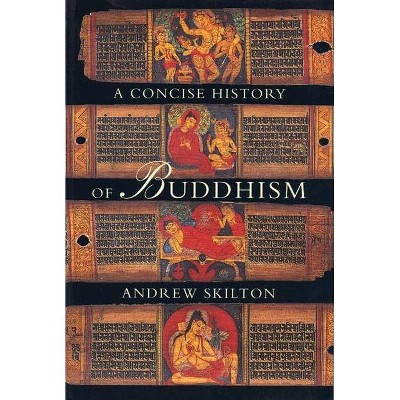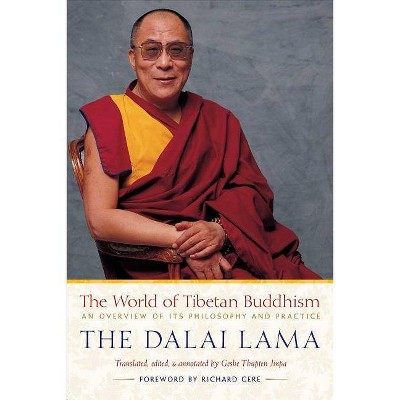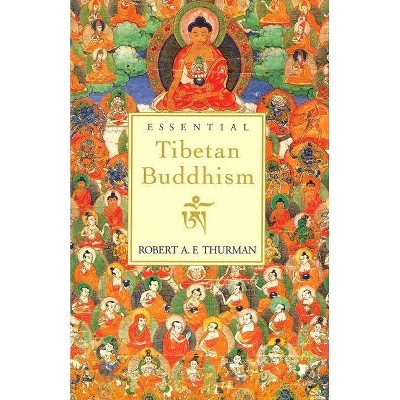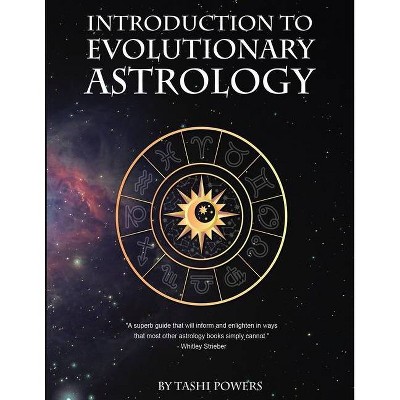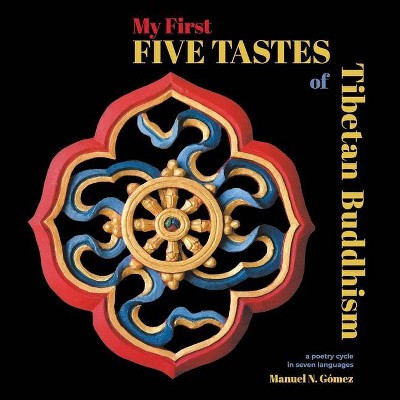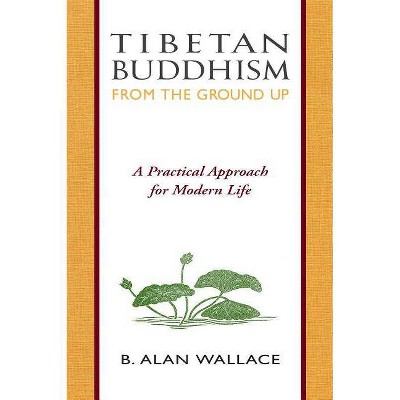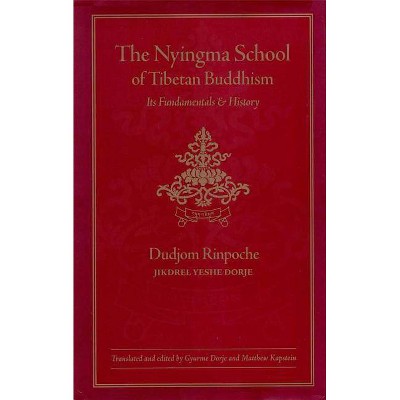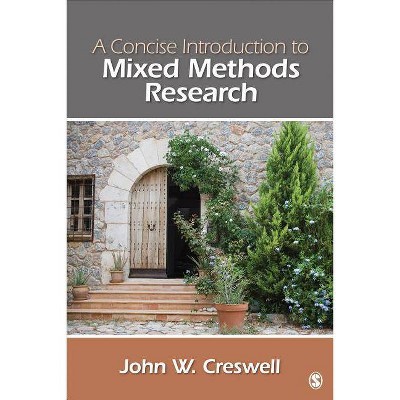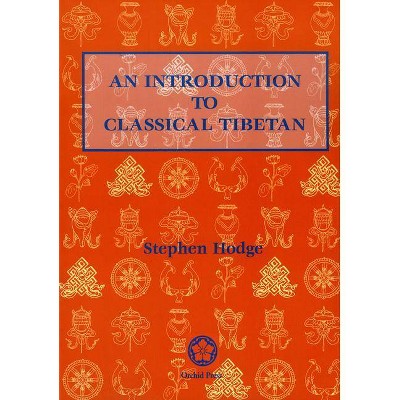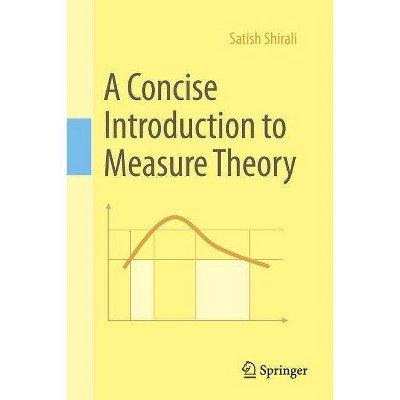A Concise Introduction to Tibetan Buddhism - by John Powers (Paperback)
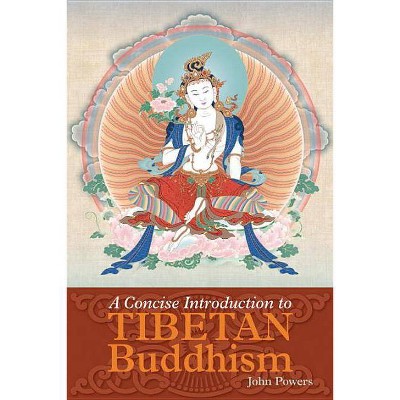
Similar Products
Products of same category from the store
AllProduct info
<p/><br></br><p><b> About the Book </b></p></br></br>Lucid and economical, the Concise Introduction delivers a brisk, fast-moving survey. For many years, Powers' nearly six hundred-page Introduction to Tibetan Buddhism has served as the field's most authoritative and comprehensive introductory text on Tibet's distinctive Buddhist tradition. Now Powers has responded to requests to provide an introductory text in compact form. This slimmed-down reference explains the core Buddhist doctrines and the practices of meditation and tantra in an engaging manner. A survey of the four main sects of Tibetan Buddhism and a succinct history of the Tibetan cultural region complete this work.<p/><br></br><p><b> Book Synopsis </b></p></br></br>Lucid and economical, this introductory text delivers a brisk, fast-moving survey of Tibetan Buddhism. For many years Powers's nearly 600-page <i>Introduction to Tibetan Buddhism</i> has served as the field's most authoritative and comprehensive overview of Tibet's distinctive Buddhist tradition. <i>A Concise Introduction to Tibetan Buddhism </i>explains the core Buddhist doctrines and the practices of meditation and tantra and provides a survey of the four main schools of Tibetan Buddhism.<p/><br></br><p><b> Review Quotes </b></p></br></br><br>Admirably unpacks the topic of tantra, that distinctive aspect of Tibetan Buddhist teaching. . . . Powers sketches with mastery one very complex system. The book logically selects material essential to a survey: history, key concepts, doctrines, and distinctions among various schools of thought. Particularly helpful is a survey of Tibetan Buddhist ideas about death and dying, which are distinctive to this form of Buddhism. Certain varieties of meditation are also distinctively Tibetan, and the author provides useful discriminations and context. . . . This concise book does yeoman work of explanation.--<i>Publishers Weekly </i> <p/>Presents the wide spectrum of Tibetan Buddhism in clear, concise form with Western methodology and critical appreciation. This work beautifully elucidates the nature of the complex religious and philosophical disciplines of Tibet.--Lobsang Lhalungpa, translator of <i>The Life of Milarepa</i> <p/>The vitality of Tibetan Buddhism in exile has exceeded anything anyone could have predicted; hence the need for a book that presents its history, doctrines, lineages, practices, and tantric essence in a comprehensive and cogent way. John Powers's <i>Introduction to Tibetan Buddhism</i> does this!--Huston Smith, author of <i>The World's Religions: Our Great Wisdom Traditions</i> <p/>A comprehensive and eminently comprehensible overview. . . . Powers' substantial <i>Introduction to Tibetan Buddhism</i> . . . is able to discuss even the most complex aspects of Tibetan Buddhism in a straightforward and engaging manner. He conveys the drama of the history of this multifaceted tradition . . . while his descriptions of Tibetan geography, architecture, [etc.], . . . give us a vivid picture of life in Tibet.--<i>Booklist</i> <p/>The best single-volume introduction to Tibetan Buddhist practice and culture. . . . Recommended for most public and academic collections.--<i>Library Journal</i> <p/>For years Powers' 500-plus-page <i>Introduction to Tibetan Buddhism </i>has served as the most authoritative introductory text on the subject. He has now produced a slimmed-down reference which explains the core Buddhist doctrines and the practices of meditation and tantra in a most engaging manner. Certainly not 'Buddhism-lite, ' this is essential reading for those who want to understand the Tibetan Buddhist tradition, and it will probably give you a taste for the longer version, from which <i>Mandala</i> used an excerpt in the October/November 2007 issue. Both of these works are recommended.--<i>Mandala Magazine </i> <p/>Indo-Tibetan philosophy and meditation theory expert John Powers . . . distills his nearly six-hundred-page classic, <i>Introduction to Tibetan Buddhism</i>, to a more accessible survey, ideal for newcomers to the doctrines, practices, meditation, and tantra of Tibetan Buddhism. . . . A simple, solid, and highly accessible primer, distilling the most important creeds of Buddhism to their bare essentials.--<i>Library Bookwatch </i> <p/>An excellent introductory text to Tibetan Buddhism, where technical terms have been kept to a minimum. . . . Engaging.--<i>Eastern Horizon</i> <p/>John Powers has written a slim but compressed explanation of the basic tenets that distinguish Tibetan Buddhism and served them up in clear and precise language. . . . A lovely primer in Tibetan Buddhism.--<i>New Age Retailer</i><br><p/><br></br><p><b> About the Author </b></p></br></br>John Powers has published twelve books, including <i>Introduction to Tibetan Buddhism</i>. He received his PhD from the University of Virginia and specializes in Indian and Tibetan intellectual history. He is currently Professor of Asian Studies at Australian National University.
Price History
Price Archive shows prices from various stores, lets you see history and find the cheapest. There is no actual sale on the website. For all support, inquiry and suggestion messagescommunication@pricearchive.us
